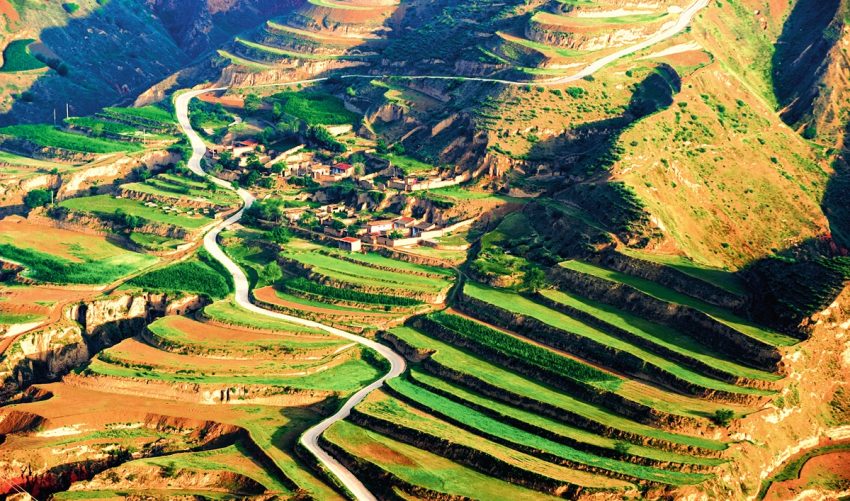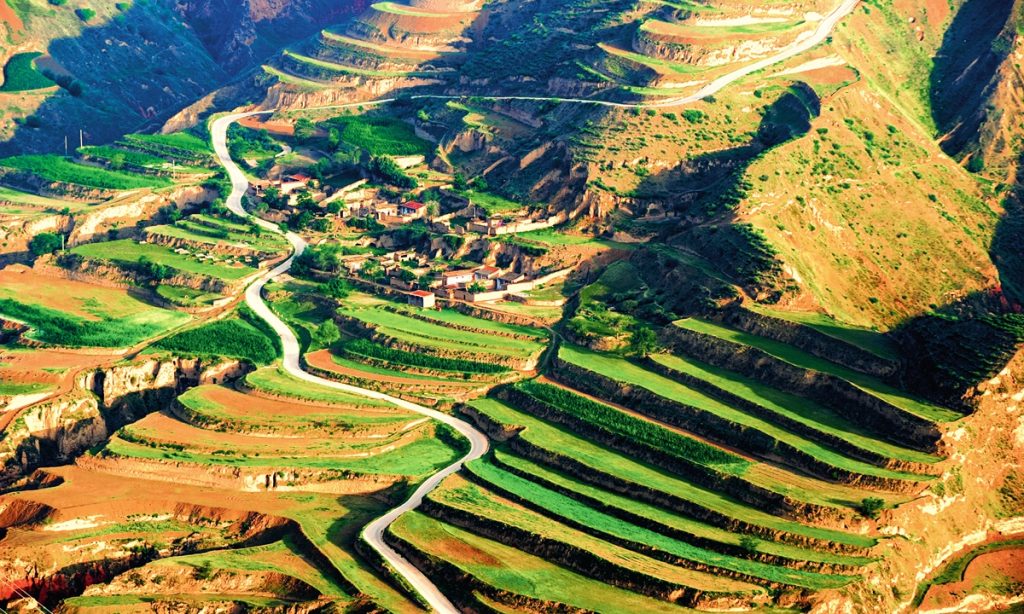
Villages in northwest China see great changes from poverty to prosperity

"Bitterness and barrenness are found everywhere," was once a true reflection of many places in northwest China, including Yuangudui village and Bulenggou village in Gansu Province. The two villages were considered as "brothers in hardship," as they shared the same journey from poverty to prosperity.
In the past, the two places faced great hardship, difficulty, and poverty. Local lives were fraught with challenges: traveling was difficult, accessing water was hard, finding decent housing was a struggle, education was a challenge, medical care was scarce, and increasing income felt nearly impossible. The vast, arid landscape of the plateau heightened the sense of desolation.
Today, the people of Yuangudui and Bulenggou villages, filled with gratitude and determination, have seen their circumstances completely transformed under the rural revitalization strategy, reflecting the spirit of a new era in the nation's rural development.
A thirst for change
During an inspection tour in Gansu Province just before the Spring Festival in 2013, Xi Jinping, general secretary of the Communist Party of China Central Committee, visited Yuangudui village in Weiyuan county in the heart of Gansu. The area had only a handful of springs and wells, meaning that the community had long suffered from drought and water shortages.
On December 28, 2014, the first phase of the water supply project to divert Taohe River was officially completed and entered trial operation.
Since then, all 447 households and 1,971 residents in the village have gained access to clean and convenient water, fulfilling the dream of the villagers that had been hoped for over half a century.
To this day, the villagers still remember what Xi told them during his visit: "Let's work together to create a prosperous life."
Back in February 2013, Xi also visited the Bulenggou village, in Dongxiang Autonomous County, Gansu Province. Ma Chunhua, a local guide, was only 11 years old when the Chinese top leader visited the village that year. Ma still remembers what Bulenggou village was like and how it has changed dramatically to what it is today.
At that time, the elementary school Ma attended had just one classroom, with its only two teachers lacking an office. Now, the situation has changed and the new elementary school is fully equipped with modern facilities.
According to Ma, the biggest challenge in the village was accessing water. "We often reused a basin of water multiple times - using the water from washing our faces to mop the floor and saving the water from washing vegetables for watering the garden or for the cattle and sheep," Ma said.
The villagers primarily relied on cisterns to collect rainwater or traveled back and forth to collect water by using pack animals to fetch water from the Taohe River, which is 30 kilometers away.
On February 28, 2013, construction began on the safe drinking water project, and in just four months, the village completed the household water supply initiative.
The village laid 15 kilometers of piping and built seven reservoirs, allowing clear tap water to flow into the villagers' yards, turning the dreams of the Bulenggou community into reality.
Ways to prosperity
Standing on the southern mountain of Bulenggou village, one can overlook a wide and straight secondary road, the Zhehong road, that runs through the village. This road not only connects the village to the outside world, but also addresses the travel needs of over 20 villages and more than 20,000 people in the entire Bulenggou watershed.
Likewise, a road was also constructed in Yuangudui village. With the road open, the villagers' lives have improved. In 2018, Yuangudui village eliminated poverty and became one of the national poverty alleviation demonstration villages.
By the end of 2023, the per capita net income of farmers in Yuangudui village reached 16,477 yuan ($2,336), an elevenfold increase from 1,465 yuan at the end of 2012, while the village's collective economic income also reached one million yuan.
Bulenggou and Yuangudui have laid a foundation for taking off, with flourishing rural tourism, farm stays, leisure agriculture, and traditional farming and breeding industries.
The development path of Bulenggou and Yuangudui once again proves that Chinese modernization is dedicated to the common prosperity of all people and the promotion of comprehensive human development, serving as a "road to happiness" that benefits the people.


